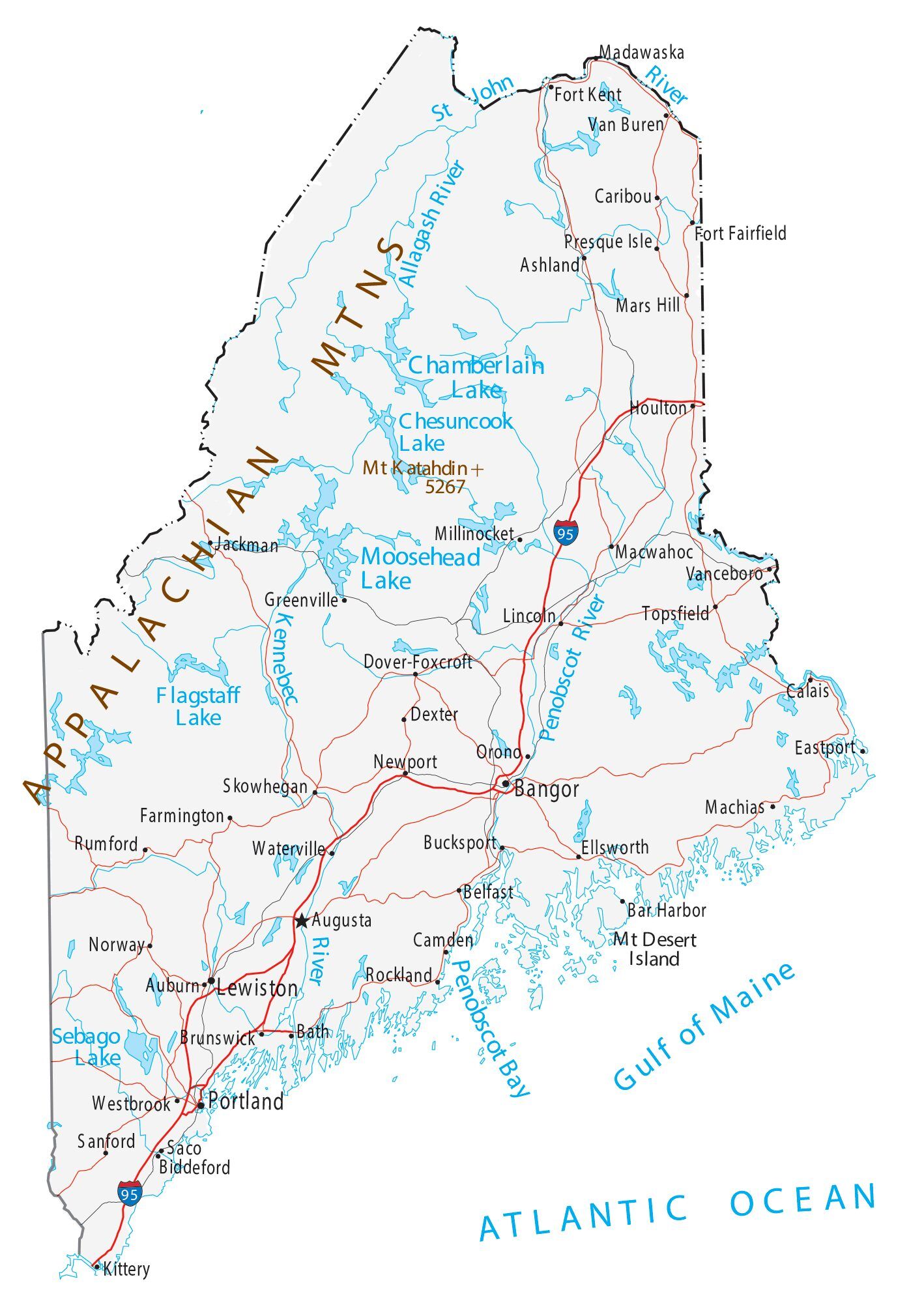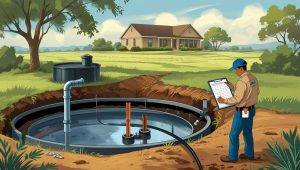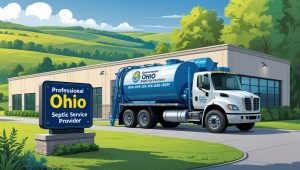Ensuring proper maintenance and compliance with septic system regulations is crucial in Maine. Adhering to state guidelines helps protect public health and the environment. In this article, we’ll explore the key aspects of Maine septic inspection laws, including installation permits, wastewater disposal, compliance information, costs, and local resources. Let’s dive in step by step.
- State-Specific Regulations Information
- Compliance Information
- Cost Information
- Local Resources & Contact Information
- Supportive Resources
- FAQs about Maine Septic Inspection Laws
State-Specific Regulations Information
Installation Permits
If you plan to install a septic system in Maine, obtaining the necessary permits is essential. Maine requires permits to ensure that the installation process follows state guidelines and protects public health.
- Permit Requirements:
Before any septic system installation, you must secure an installation permit from your local health department or environmental agency. These permits ensure that the system meets Maine’s environmental and safety standards. - Permit Costs:
The cost of a Maine septic permit typically ranges between $500 and $2,000, depending on factors such as system size and installation complexity. It’s always a good idea to contact your local health department to get an accurate estimate for your specific project.
Septic Tank Size and Placement
Maine has specific guidelines to ensure that septic tank size and placement follow environmental and safety requirements.
- Tank Sizing Guidelines:
In Maine, the size of your septic tank depends on the number of bedrooms in your home. A typical residential system should have a tank that holds at least 1,000 gallons. Larger homes may require larger tanks to accommodate higher wastewater flows. - Drain Field Placement Requirements:
Placement of the drain field must follow state environmental protection guidelines to prevent contamination of groundwater and nearby water bodies. The drain field should be positioned at least 100 feet away from wells and other water sources.
Wastewater Disposal
Proper wastewater disposal is a significant focus of Maine septic system regulations. Adhering to wastewater disposal laws helps protect both the environment and public health.
Maine wastewater management laws require homeowners to ensure that all wastewater is properly treated and disposed of. Discharge of untreated wastewater into the environment is strictly prohibited. Instead, wastewater must pass through the septic tank, undergo adequate treatment, and flow into the drain field according to Maine’s wastewater management guidelines.
Maintenance and Pumping
Regular maintenance and pumping of septic systems are necessary to keep them functioning efficiently and comply with state guidelines.
- Recommended Pumping Schedules:
Maine health department guidelines recommend having your septic system pumped every 2-3 years. However, the frequency may vary depending on household size and usage. Larger households may require more frequent pumping. - Maintenance Requirements:
Regular inspections are also necessary to ensure that all components of your septic system, such as the tank, drain field, and pipes, remain in good working condition. State guidelines recommend routine checks to identify potential issues before they become costly problems.
Compliance Information
Potential Fines and Penalties
Non-compliance with Maine septic system regulations can result in significant penalties. These penalties are designed to encourage homeowners and septic service providers to adhere to state guidelines.
- Fines for Non-Compliance:
If you fail to follow Maine’s septic inspection laws, you could face fines ranging from $500 to $5,000. In severe cases, legal action may be taken, and you could be required to pay the costs of environmental cleanup. - Legal Consequences:
Ignoring these regulations not only brings financial penalties but also poses risks to public health and the environment. A poorly managed septic system can contaminate water sources and affect the well-being of local communities.
State-Specific Environmental Protections
Maine places a strong emphasis on protecting the environment through strict septic system regulations.
- Groundwater Protection:
Maine’s wastewater disposal guidelines prioritize protecting groundwater. This means septic systems must be designed and maintained to prevent contamination. - Environmental Safeguards:
Environmental agencies in Maine enforce safeguards that protect rivers, lakes, and soil from contamination. Compliance with these protections ensures that Maine’s natural resources remain clean and sustainable.
Cost Information
Typical Costs for Services Related to Septic Maintenance and Installation in Maine
Understanding the costs associated with septic system services helps homeowners budget effectively.
- Permit Fees:
Obtaining a septic installation permit in Maine typically costs between $500 and $2,000. The cost depends on the location and complexity of your project. - Pumping Costs:
The cost of septic system pumping in Maine ranges from $300 to $600. Regular pumping ensures that the system remains in good working condition and prevents costly repairs. - Installation Estimates:
The cost of installing a new septic system in Maine can vary widely. A standard installation usually costs between $5,000 and $15,000. Factors such as soil type, system size, and installation complexity affect the overall cost.
Local Resources & Contact Information
State Agencies Responsible for Septic Compliance
Maine residents can reach out to official state agencies and environmental departments to ensure compliance with septic system guidelines.
- Maine Department of Environmental Protection:
This agency oversees wastewater management and septic system regulations in Maine. - Local Health Departments:
Your local health department can provide information about septic permits, inspections, and compliance requirements.
State-Certified Septic Service Professionals
Hiring a certified septic service provider ensures that your system meets Maine’s compliance and environmental guidelines.
- Local Septic Service Companies:
You can find state-certified septic service companies through directories provided by the Maine Department of Environmental Protection. - Professional Directories:
Websites such as the Maine Health Department’s official portal offer reliable contacts and resources for certified professionals.
Contact
DHHS-DHE
11 State House Station
Augusta, Maine 04333-0011
Telephone: (207) 287-5689
Fax: (207) 287-3165
TTY: (207) 287-2070 (Deaf/Hard of Hearing)
Supportive Resources
Government Health Departments and Environmental Agencies
Visit the official websites of these agencies for accurate and up-to-date information:
- Maine Department of Environmental Protection: maine.gov
- Maine Health Department Guidelines: Accessible through local health department portals.
Trusted Septic Service Providers
Many certified service companies maintain websites with detailed information about their services and compliance expertise.
Handbooks, Infographics, and Downloadable Guides
- Free downloadable guides on septic system maintenance are often provided by state environmental departments.
- Infographics explaining wastewater treatment processes are available on health department websites, offering clear visual guidance for homeowners.
FAQs about Maine Septic Inspection Laws
What are the key requirements for a septic system installation permit in Maine?
Under Maine septic inspection laws, a permit is required for installing a septic system. This permit ensures compliance with state environmental and health regulations. Permit costs may vary based on system size and location, and approval often requires input from local health departments or municipal authorities Maine. For accurate details, visit Maine.gov.
What guidelines should I follow for septic tank size and drain field placement in Maine?
Maine septic system regulations include specific guidelines for tank sizing and drain field placement. These requirements depend on household size, wastewater volume, and soil composition Maine. Adhering to these guidelines under Maine septic inspection laws helps prevent contamination and ensures proper wastewater disposal Maine.
Are there any specific wastewater disposal laws in Maine I should know about?
Yes, Maine wastewater inspection laws focus on protecting water resources and preventing environmental contamination. Regulations comply with Shoreland Zoning and DEP licensing, which ensure proper disposal of wastewater to protect surface and groundwater resources Maine. Refer to Maine DEP for comprehensive wastewater disposal regulations.
What is the recommended schedule for septic system maintenance and pumping in Maine?
Maine health guidelines recommend that septic tanks be pumped every two to three years to prevent solids from clogging the leach field and drain pipes Maine. Regular maintenance checks by certified professionals help identify issues early, ensuring compliance with Subsurface Wastewater Disposal Rules Maine. A local certified septic service provider should inspect your system periodically to adhere to state regulations and protect public health.
What penalties can I face if I don’t comply with Maine’s septic system regulations?
Non-compliance with Maine septic system regulations can result in significant penalties. Local code enforcement officers or the Maine DEP may issue Compliance Orders or Abatement Orders to enforce compliance. These orders detail necessary corrective actions and deadlines Maine. Failure to address these violations may result in court injunctions and legal actions, which could involve repair or replacement costs borne by the property owner Maine. The costs are recoverable through civil complaints or taxes assessed against the property.
What are the costs associated with septic installation and maintenance in Maine?
Costs for septic installation and maintenance in Maine depend on system size, location, and soil type. Here’s a breakdown of typical costs:
- Permit Fees: Permit costs vary but typically range from $200 to $500 depending on the municipality and system scale.
- Septic Tank Pumping: Pumping services cost between $300 and $500 every 2-3 years Maine.
- Installation Estimates: Installing a new septic system costs anywhere from $5,000 to $15,000 or more based on tank size and site conditions Maine.
Consult with a certified local septic service provider to get a tailored estimate for your system’s requirements Maine.
Which state agencies should I contact for assistance with septic system questions in Maine?
For guidance and regulatory compliance related to septic systems in Maine, contact the following state agencies:
- Maine Department of Health and Human Services: Oversees permit approvals and compliance inspections. Visit DHHSMaine.
- Maine Department of Environmental Protection (DEP): Manages wastewater disposal and Shoreland Zoning compliance. Maine DEP WebsiteMaine.
- Local Health Departments: Municipal health offices typically handle inspections and enforce local regulationsMaine.
Are there any environmental protections specific to Maine’s septic regulations?
Yes, Maine’s environmental regulations include protections to prevent contamination of surface and groundwater. The Shoreland Zoning Law, Erosion and Sedimentation Control Law, and DEP licensing ensure that all wastewater disposal complies with state and federal environmental standards Maine. Additionally, compliance with fill material requirements for septic installations helps maintain Maine’s water quality Maine.
Where can I find reliable resources and guides about Maine septic system regulations?
For comprehensive and state-specific resources, visit:
- Maine Department of Health and Human Services: Provides guidelines for installations and permits DHHS MaineMaine.
- Maine DEP Shoreland Information: Covers wastewater management, shoreland regulations, and environmental protection laws DEP MaineMaine.
- Local Certified Septic Service Providers: A list of state-approved professionals can usually be obtained from municipal offices or health departmentsMaine.
What should I do if I detect problems with my septic system?
If you notice any issues, such as foul odors, slow drainage, or backups, contact a certified septic service professional immediately. Maine regulations require local health inspectors to conduct system evaluations and enforce corrective actions Maine. Additionally, your town’s code enforcement officer or health department can provide assistance and guidance Maine. You can also visit Maine DEP for more information about environmental compliance and protection.
NH Septic Tank Size Requirements: A Complete Guide
Directory | New Hampshire Septic Service Providers : Best Professionals
Texas Septic Inspection Requirements: What Homeowners Need to Know
Directory | Ohio Septic Service Providers | Part 3
Directory | Ohio Septic Service Providers : Best Professionals | Part 2
Directory | Ohio Septic Service Providers : Best Professionals | Part 1







